
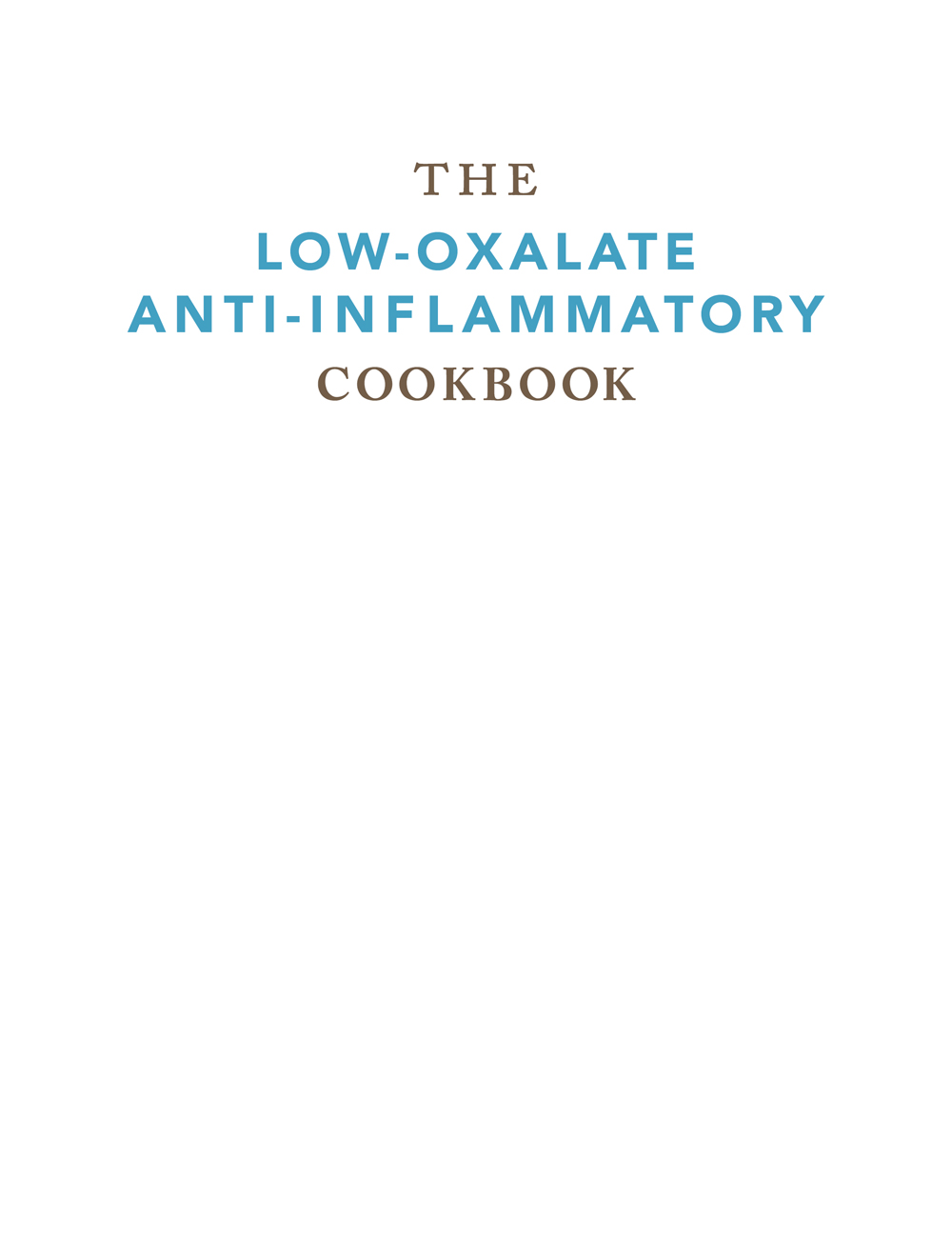
 Copyright 2018 by Cindy Bokma All rights reserved. No part of this book may be reproduced in any manner without the express written consent of the publisher, except in the case of brief excerpts in critical reviews or articles. All inquiries should be addressed to Skyhorse Publishing, 307 West 36th Street, 11th Floor, New York, NY 10018. Skyhorse Publishing books may be purchased in bulk at special discounts for sales promotion, corporate gifts, fund-raising, or educational purposes. Special editions can also be created to specifications. For details, contact the Special Sales Department, Skyhorse Publishing, 307 West 36th Street, 11th Floor, New York, NY 10018 or info@skyhorsepublishing.com.
Copyright 2018 by Cindy Bokma All rights reserved. No part of this book may be reproduced in any manner without the express written consent of the publisher, except in the case of brief excerpts in critical reviews or articles. All inquiries should be addressed to Skyhorse Publishing, 307 West 36th Street, 11th Floor, New York, NY 10018. Skyhorse Publishing books may be purchased in bulk at special discounts for sales promotion, corporate gifts, fund-raising, or educational purposes. Special editions can also be created to specifications. For details, contact the Special Sales Department, Skyhorse Publishing, 307 West 36th Street, 11th Floor, New York, NY 10018 or info@skyhorsepublishing.com.
Skyhorse and Skyhorse Publishing are registered trademarks of Skyhorse Publishing, Inc., a Delaware corporation. Visit our website at www.skyhorsepublishing.com. 10 9 8 7 6 5 4 3 2 1 Library of Congress Cataloging-in-Publication Data is available on file. Cover design by Mona Lin Cover photo credit iStock Print ISBN: 978-1-5107-3719-8 Ebook ISBN: 978-1-5107-3721-1 Printed in China Contents PART ONEWhat You Need to Know How is that feeding our bodies has become more confusing over the years? Thank goodness for Cindy Bokma, whose own health journey has taken more twists and turns than gluten-free fusilli pasta. After reading her story and devouring her surprisingly comforting recipes, youll feel clearer in mind, body, and spirit. Elizabeth Kendig, Healers Podcast Introduction I am not a professional nutritionist or dietician or medical expert.
I am not a professional nutritionist or dietician or medical expert.
I am also not a chef. I am however, a home cook who has probably spent more time in the kitchen than any other place. Over the past several years, I have had a myriad of health issues that have been greatly helped by changing the food that I eat. Ever since I was a little girl paging through my mothers Good Housekeeping magazines, Ive had an interest in food and health. There is such an undeniable link between what we eat and how we feel, and Im glad to see more and more people understanding that the food you put into your body directly affects things like mood, skin, energy levels, and so much more. Food has the ability to harm and heal on a deep level.
I like researching and taking notes and understanding wellness, so when my own health began to take a turn, I didnt think twice about finding out what on earth was happening within my own body. For some reason I always want to do things myself and hate asking for help. Going to the doctor is always a last resort if I cannot find out ways to figure out whatever is going wrong. Several years ago, out of the blue (or so it seemed), I developed a gluten issue. My stomach ached every time I ate cereal, muffins, bread, or pasta, which was at least a few times a week. The talk of gluten was everywhere from the health blogs to magazine articles.
With all of that in mind, I decided to remove gluten from my diet to see if I felt betterand I never turned back. However, I dont recommend eliminating gluten before getting tested, as it makes a firm diagnosis difficult. Since I had gone off gluten, the tests to see if I had celiac were inconclusive. Going back on gluten for six weeks would likely give me a definite answer, but I didnt want to be sick for over a month. I highly recommend getting tested if you think you have celiac or a gluten intolerance. Diving into gluten-free cooking, I armed myself with almond flour cookies and spinach smoothies, I ate gluten-free toast with peanut butter every morning with a handful of almonds in between meals.
Black, pinto, or kidney beans in chili or taco salad was something I made often, and hummus was one of my favorite snacks. I used tahini in my chocolate chip cookies, baked scones, and Irish soda bread with almond flour as gluten-free and paleo cookbooks directed me to do. Then my interstitial cystitis (IC) began to act up. IC is a condition commonly known as painful bladder disease and presents the same symptoms as a bladder infection. If you have ever suffered from a bladder infection, you know about the pain and discomfort. It was so bad that I was up going to the bathroom at least twenty times a night.
The next day Id barely function from lack of sleep, Id also be highly irritable because I was so exhausted. I tried many supplements, but found little relief. With two kids who needed me, I was lucky if I made it through the day without a nap. My doctor put me on a medication that was over two hundred dollars for a single bottle to last the month. I used the medication sparingly, choosing to suffer instead. I had guilt over spending so much money on the prescription.
I joined message boards and asked questions, praying for something, somewhere to help. When a member asked if I had been watching my oxalates, I had no idea what she was talking about. Oxalates? No, I was a healthy eater. I made all of my own food. I was paleo! I was gluten-free! I made green smoothies every day and sprinkled chia seeds on my yogurt! At the time I didnt bother to research oxalates, dismissing them just as I had skipped over the topic of pyroluria and high histamines (more on this in a little bit!). No, I was so healthy with all my almond flour muffins and peanut butter protein cookies, there was no way I had any other issues besides the gluten thing and the IC.
Things were so bad however that whenever my family went anywhere, Id have to make sure bathrooms were easily available, basing activities on whether or not I could reach a restroom. Think about that for second: my day was planned around the location of bathroomsespecially on vacations. A cruise around Seattle? Great, would there be bathrooms? A tour of a glacier? Okay, but is there a restroom? A long drive up the coast? Only if we can stop frequently for potty breaks! Ill never forget being in Alaska and wanting to do a horseback riding excursion, but I couldnt because... what if I had to pee? I also remember my husband driving around on vacation trying to find a health food store looking for specific supplements, anything to help me with the extreme discomfort I was experiencing. Maybe I should look into those oxalates. The very basic description is that oxalates are kind of like a built-in pesticide in vegetables, fruits, nuts, and seeds, acting as a deterrent for insects and other small pests.
We cannot digest oxalates; they are usually moved through the digestive tract and eliminated. For people with leaky gut syndrome, however, this is where oxalates become a problem. Leaky gut is when the junctures of the gut are not tight as they should be, allowing food particles, bacteria, and toxins to slip through. Kind of like a tightly knit sweater where the yarn becomes loose and holes emerge. You might see leaky gut referred to as intestinal permeability. Signs include bloating, gas, cramping, fatigue, joint pain, and rashes.
Its linked to inflammation, and autoimmune diseases like chronic fatigue, rheumatoid arthritis, lupus, and leaky gut can trigger other illnesses. If you think this sounds serious, youre right. It is possible for oxalates to act as a poison if the diet does not contain enough calcium. Calcium binds with oxalates and helps keep it from being absorbed. Most people, like those without any food sensitivities or leaky gut, are able to consume and break down oxalates without a problem. When overaccumulation of oxalates occur, it becomes an issue for our kidneys, and oxalates are not properly flushed out.
Next page
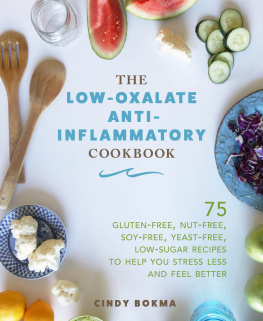

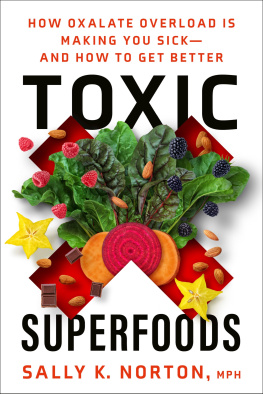
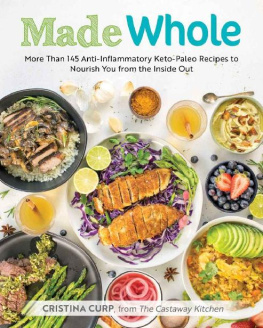
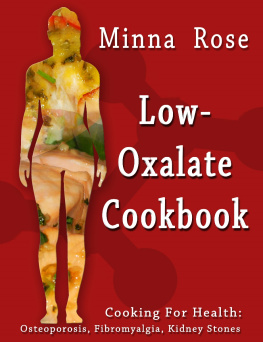
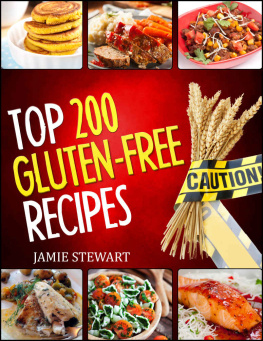


 Copyright 2018 by Cindy Bokma All rights reserved. No part of this book may be reproduced in any manner without the express written consent of the publisher, except in the case of brief excerpts in critical reviews or articles. All inquiries should be addressed to Skyhorse Publishing, 307 West 36th Street, 11th Floor, New York, NY 10018. Skyhorse Publishing books may be purchased in bulk at special discounts for sales promotion, corporate gifts, fund-raising, or educational purposes. Special editions can also be created to specifications. For details, contact the Special Sales Department, Skyhorse Publishing, 307 West 36th Street, 11th Floor, New York, NY 10018 or info@skyhorsepublishing.com.
Copyright 2018 by Cindy Bokma All rights reserved. No part of this book may be reproduced in any manner without the express written consent of the publisher, except in the case of brief excerpts in critical reviews or articles. All inquiries should be addressed to Skyhorse Publishing, 307 West 36th Street, 11th Floor, New York, NY 10018. Skyhorse Publishing books may be purchased in bulk at special discounts for sales promotion, corporate gifts, fund-raising, or educational purposes. Special editions can also be created to specifications. For details, contact the Special Sales Department, Skyhorse Publishing, 307 West 36th Street, 11th Floor, New York, NY 10018 or info@skyhorsepublishing.com. I am not a professional nutritionist or dietician or medical expert.
I am not a professional nutritionist or dietician or medical expert.